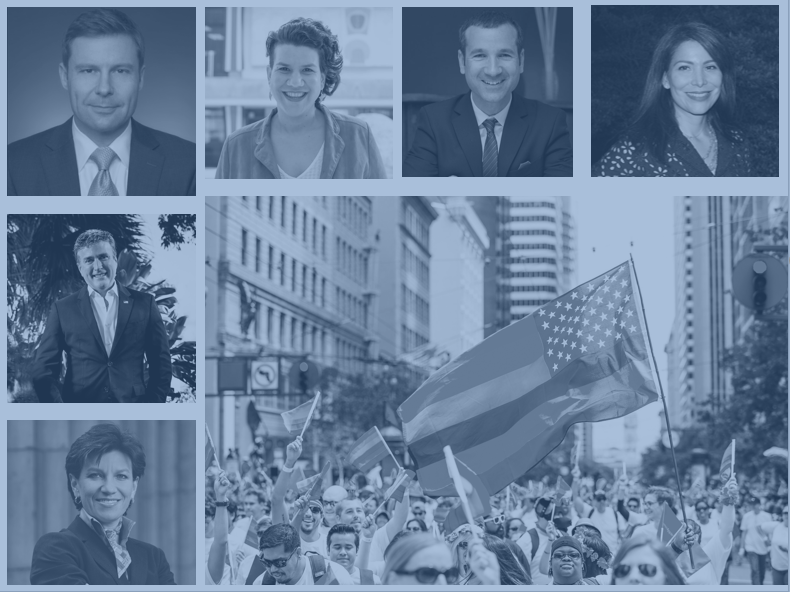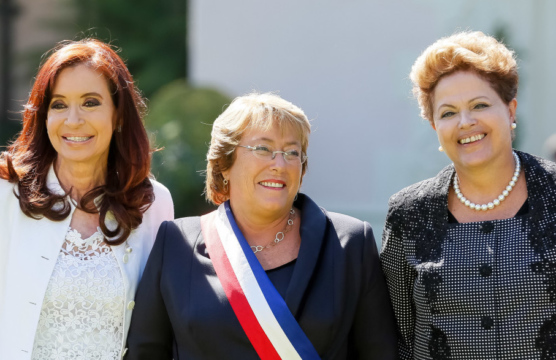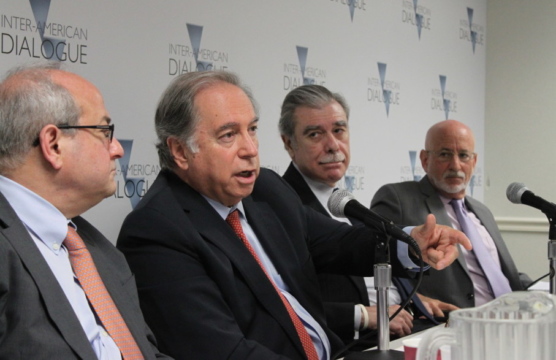Measuring Discrimination: Race and Data in Brazil
Though racial equality is improving in Brazil, there is significant room for progress.
On December 3, the Dialogue partnered with the Victory Institute to host the event “LGBTQ Rights and US Foreign Policy: A Need to Lead” as part of the 2020 International LGBTQ Leaders Conference. The keynote address featured Claudia López, mayor of Bogotá, Colombia. Panelists included Wally Brewster, former US ambassador to the Dominican Republic and CEO of Insignias Global; Javier Corrales, professor and chair of political science at Amherst College; Paula Uribe, former senior advisor for Western Hemisphere affairs at the US Department of State and director at PepsiCo; and Margarita Salas Guzmán, presidential commissioner for LGBTQI affairs for Costa Rica. Ross Lajeunesse, adjunct professor at Georgetown University’s Walsh School of Foreign Service, moderated the conversation.
Mayor López shared her story as the first woman and openly LGBTQ person to be elected mayor of Bogotá. She outlined three challenges she faces as mayor, the first being how to remain true the causes of the LGBTQ and women activists who came before her and turn their fight for equality “from paper into reality.” Her mission as an official, she said, is to demonstrate to her public that “causes of inclusion help create a better society for all,” not only female and LGBTQ populations. Her second challenge has been to carry out this mission publicly by campaigning as openly lesbian, allowing the people of Bogotá to choose whether they would side with tolerance. The third is to honor the history of the struggle for equal rights with concrete action that addresses the expectations of all sectors of the LGBTQ community. She called attention to the uneven discrimination within the LGBTQ community, with transgender individuals often the target of the harshest discrimination. To spur effective policy change, she urged the LGBTQ community to move progressively “from social activism to political representation.”
Ambassador Brewster spoke of the challenges he faced as an LGBTQ official representing the United States in the Dominican Republic. He is the first person in a same-sex marriage to have represented the United States at the ambassadorial level in the Americas. He identified “leadership, visibility, education, and laying the groundwork for the future” as the key elements of his strategy as ambassador to raise the local profile of LGBTQ causes. Knowing he would have to go above and beyond to gain a degree of acceptance, he ensured that he and his husband, along with LGBTQ organizations and symbols, were visible at public events and sustained conversations on these issues. Having also faced internal challenges from the Department of State itself, he noted that improving education on LGBTQ issues for embassy staff will be vital going forward.
Corrales explained that Latin America provides a central social science experiment in LGBTQ rights because pro-LGBTQ changes to the law preceded shifts toward progressive public sentiment, the opposite of which occurred in the United States. In Latin America, this legal progress has prompted, in some cases, conservative backlash and efforts to roll back changes. The evidence, he said, indicated that the decision to reform the law before the public changed its sentiment produced previously nonexistent debates that served to influence peoples’ views, demonstrating that “homophobia and transphobia can recede.” In this sense, Corrales argued, “legal and policy changes can actually produce positive change at the level of acceptance in society.”
Uribe reiterated the need for educating the public on LGBTQ rights both inside and outside the Department of State. While at State, Uribe mentioned that her own bureau, which saw LGBTQ rights as central to its Western Hemisphere agenda, often encountered departmental resistance. In response, her office issued a cable directing embassy officials to raise the profiles of these issues and engage with the LGBTQ NGOs, some which faced rejection by their own domestic governments. She expressed her concern over the possible regression during the last four years of their progress, asserting that support for the LGBTQ community is “an issue of doing the right thing as a government and as individuals regardless of what [people] think or believe religiously.”
Salas noted that LGBTQ rights do not feel like “issues” to her, but rather the “everyday needs and lives of [her, her family and those closest to her].” She explained that, while political parties often push the notion of LGBTQ rights as marginal election issues, that was not the case in Costa Rica. The 2018 election came to be defined by candidates’ support for equal marriage, despite the fact that the measure was already guaranteed in the country’s legal code. The election provoked a broad public discussion and, as a result, the winning administration put its full force behind LGBTQ rights, even requiring public officials to complete training on LGBTQ issues. Salas emphasized the need to expand public attention into areas beyond equal marriage to include hate crime legislation, the development of LGBTQI statistics, and a full recognition of gender identity, among other components. The key for politicians like herself, she said, is “not to let people forget that LGBTQI are everywhere,” meaning that public policy challenges require an intersectional approach. Salas emphasized that “racial issues, gender issues, class issues are also LGBTQI issues.”
Lajeunesse asked the panelists what advice they would give to the US Department of State in the next administration. Salas replied that public-private partnerships – along with affirmative action initiatives for LGBTQ individuals – must be adopted more broadly. She also called for the development of a refugee status for those persecuted due to their sexual orientation. Uribe emphasized that within the Department of State, gender sensitive training must take place, and the incoming administration will need to rebuild the agency to bring back those who were champions of equality. Brewster reiterated that US LGBTQ officials “showing up” is vital in raising visibility and educating the public. Corrales added that, because transphobia and homophobia are taught attitudes, the United States has the potential to play a large role in helping Latin American governments transform their public education systems into ones that are tolerant and accepting of diversity. Participants agreed, however, that the United States must not see itself as the unique leader on LGBTQ rights. The country must recognize that it has made mistakes and it can learn from other nations who have done the same. In conclusion, Salas emphasized the need for an intersectional approach in facing challenges by understanding that “racial issues, gender issues, class issues are also LGBTQI issues.”
Though racial equality is improving in Brazil, there is significant room for progress.
Despite making significant gains in government and politics, women continue to face structural barriers.
Although improvements will be necessary, the US and Latin America have experienced a period of mutual learning and growth unlike any other.
 Main Photo: Thomas Hawk / Flickr / CC BY-NC 2.0
Main Photo: Thomas Hawk / Flickr / CC BY-NC 2.0
 Video
Video
 Video
Video